Ramadan in Syria: Rising food prices push basics out of reach
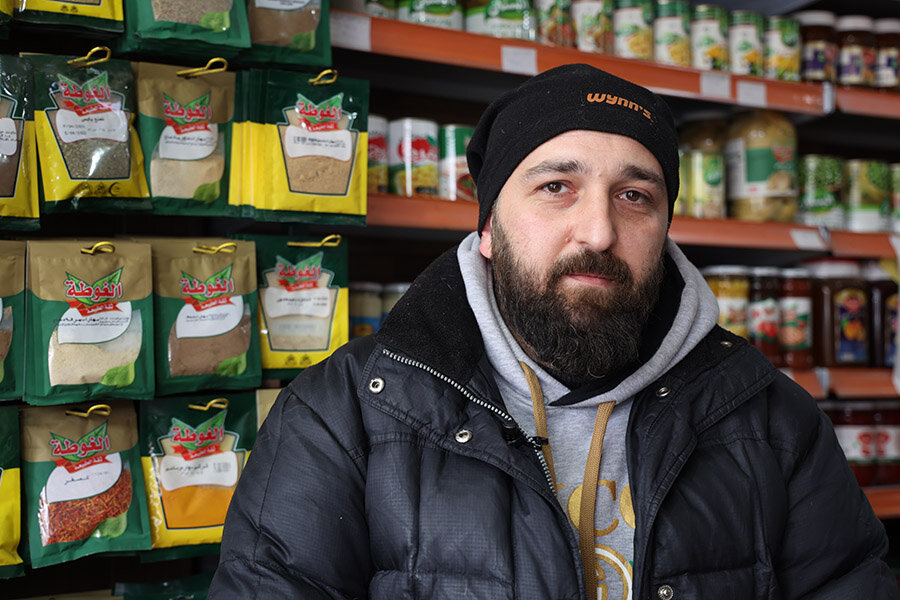
Traditionally, in the weeks leading up to Ramadan in Syria, kitchens would be filled with a host of foods and drinks identified with the holy month and the daily breaking of fasts. Busy markets would treat shoppers to special seasonal offers. This year, however, as the war in Ukraine sends food and fuel prices up ever higher, there are far fewer shoppers around.
“We were hoping that by now our food assistance would be about changing people’s lives, but instead, now more than ever, our interventions are about saving those lives,” says Ross Smith, Deputy Country Director for the World Food Programme (WFP) in Syria.
During Ramadan, spreads in people's homes bear dates and refreshing apricot and tamarind drinks to break fasts – few can afford that this year because of the economic crisis gripping the country.
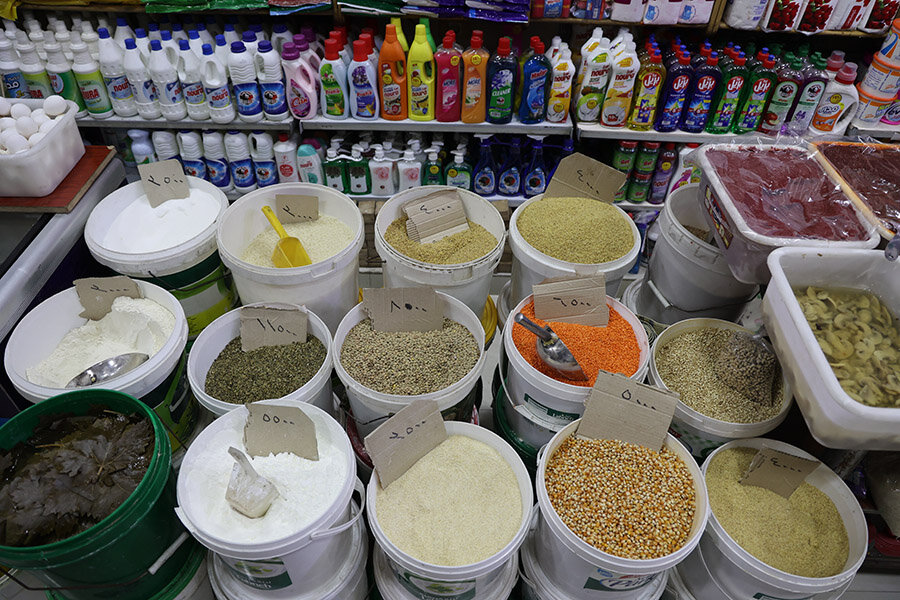
Syrians are wrestling with the ongoing economic consequences of years of conflict, COVID-19, climate change and the economic crisis in neighbouring Lebanon (whose economy is closely tied to Syria’s) which have left no household untouched.
The Syrian pound has lost 80 percent of its value since Lebanon’s crisis began in 2019. This has eroded the purchasing power of millions of people, and at the same time, food prices have soared.
According to the latest data from WFP, between 2019 and 2021, the price of basic foods increased by a staggering 800 percent . By the second week of March 2022, with the war in Ukraine having started, food prices were up 18 percent on early February. Families are now being forced to choose between buying food, fuel or medicine. People like these residents of Aleppo can no longer afford them all...
Zaher
Zaher is experiencing the lowest turnout since he opened his store two years ago. “People can no longer buy all the foods they need. Instead, they are buying half the quantities or settling for lower qualities to make ends meet,” he says.
Om Hussein
After pursuing all the offers in her local store, Om Hussein gives up on finding affordable ingredients to cook a meal for her three daughters. She decides to buy some ghee and cook with whatever she can find at home. Since a can of ghee costs more than what she has in her pocket, the shop offers her the choice to buy a small amount of ghee in a plastic bag.
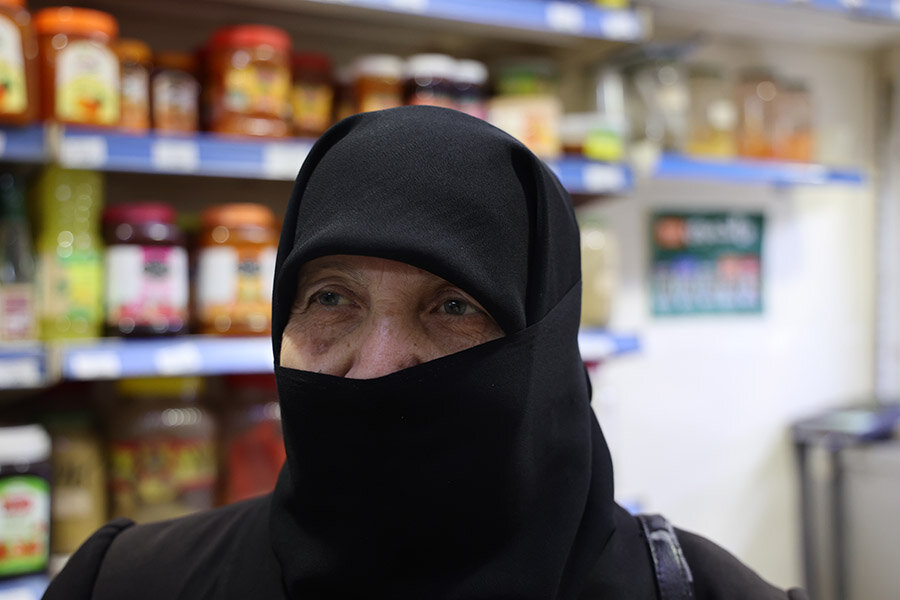
This style of shopping for basic food items is now increasingly common in shops across the country after years of conflict followed by an unrelenting economic downturn. With the majority of the population now living in poverty, most can only buy food in cups or spoons rather than cans, packs or bottles.
Abo Fo'ad
Abo Fo’ad receives a monthly combination of staple foods and cash transfers from WFP to shop for the things he needs. Years ago, the father of five used to make a decent living from his work as a confectioner, but after conflict left him injured, jobless and without any assets, he switched to selling paper wipes. “My injury meant I had to find a job that I can do while seated.” But with basic goods becoming increasingly expensive, “people no longer have the money to buy my tissues,” he says.
Mohammad
“We make it through one day at a time,” says Mohammad as he browses through the shops for essentials his family needs. Although he considers himself lucky to still have a job, Mohammad is deeply concerned as the value of his income is depreciating very quickly.

“What I earn today equals a fraction of what it used to. The prices jumped numerous times, but salaries didn’t catch up and our money is worth much less.”
Aisha
“If we survive today, we don’t know what tomorrow holds for us,” says Aisha
Aisha has five children. She sells vegetables for a living. However, the recent increase in prices have meant more people are cancelling their orders. As a result, her vegetables go bad, and she ends up losing instead of making money.
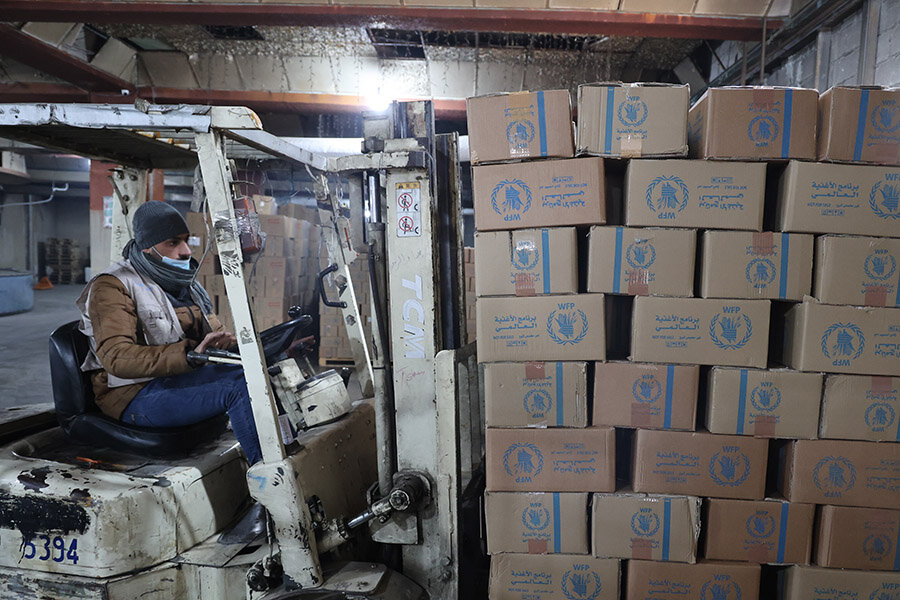
“No matter how hard I work, prices jump again and I can’t attend to my children’s needs,” she says, “I often have to resort to using credit, but people are no longer able to lend me money as they are struggling themselves.”
Aisha receives monthly food rations from WFP, but last year rations were reduced to allow for a scale up to reach an additional 1 million people in response to food insecurity growing rapidly across the country. Nevertheless, Aisha says if it wasn’t for the support of WFP’s rations, it would be impossible for her and her family to survive.
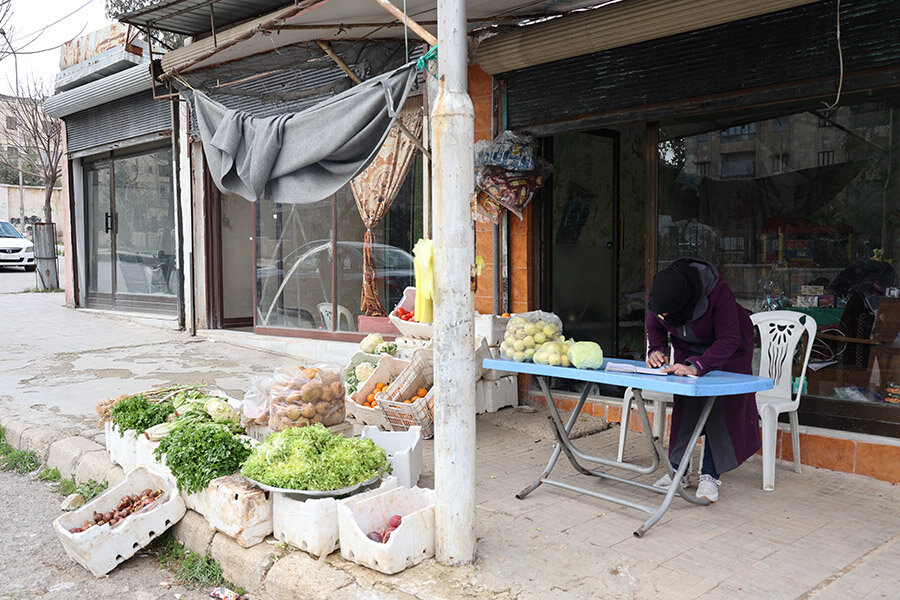
For Syrian families, Ramadan is becoming harder. Food from WFP is a lifeline for 5.6 million people across Syria. This support is critical to support the country’s most vulnerable families to withstand continuous shocks and a worsening economic decline.
As humanitarian needs soar, WFP requires over US$515 million in funding by September 2022 to continue to support the needs of families who have nothing left. Each month WFP provides food, cash and nutrition support to families who have no other way to meet their basic needs.
Learn more about WFP's work in Syria


